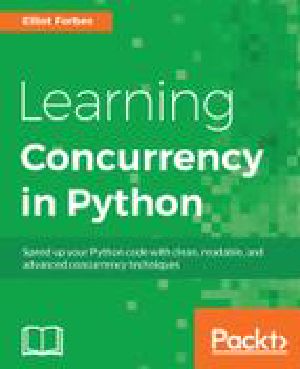Learning Concurrency in Python

- Authors
- Forbes, Elliot
- Publisher
- Packt Publishing
- Tags
- python , programming
- Date
- 2017-08-16T00:00:00+00:00
- Size
- 2.74 MB
- Lang
- en
Practically and deeply understand concurrency in Python to write efficient
programs About This Book - Build highly efficient, robust, and concurrent
applications - Work through practical examples that will help you address the
challenges of writing concurrent code - Improve the overall speed of execution
in multiprocessor and multicore systems and keep them highly available Who
This Book Is For This book is for Python developers who would like to get
started with concurrent programming. Readers are expected to have a working
knowledge of the Python language, as this book will build on these
fundamentals concepts. What You Will Learn - Explore the concept of threading
and multiprocessing in Python - Understand concurrency with threads - Manage
exceptions in child threads - Handle the hardest part in a concurrent system -
shared resources - Build concurrent systems with Communicating Sequential
Processes (CSP) - Maintain all concurrent systems and master them - Apply
reactive programming to build concurrent systems - Use GPU to solve specific
problems In Detail Python is a very high level, general purpose language that
is utilized heavily in fields such as data science and research, as well as
being one of the top choices for general purpose programming for programmers
around the world. It features a wide number of powerful, high and low-level
libraries and frameworks that complement its delightful syntax and enable
Python programmers to create. This book introduces some of the most popular
libraries and frameworks and goes in-depth into how you can leverage these
libraries for your own high-concurrent, highly-performant Python programs.
We'll cover the fundamental concepts of concurrency needed to be able to write
your own concurrent and parallel software systems in Python. The book will
guide you down the path to mastering Python concurrency, giving you all the
necessary hardware and theoretical knowledge. We'll cover concepts such as
debugging and exception handling as well as some of the most popular libraries
and frameworks that allow you to create event-driven and reactive systems. By
the end of the book, you'll have learned the techniques to write incredibly
efficient concurrent systems that follow best practices. Style and approach
This easy-to-follow guide teaches you new practices and techniques to optimize
your code, and then moves toward more advanced ways to effectively write
efficient Python code. Small and simple practical examples will help you test
the concepts yourself, and you will be able to easily adapt them for any
application.